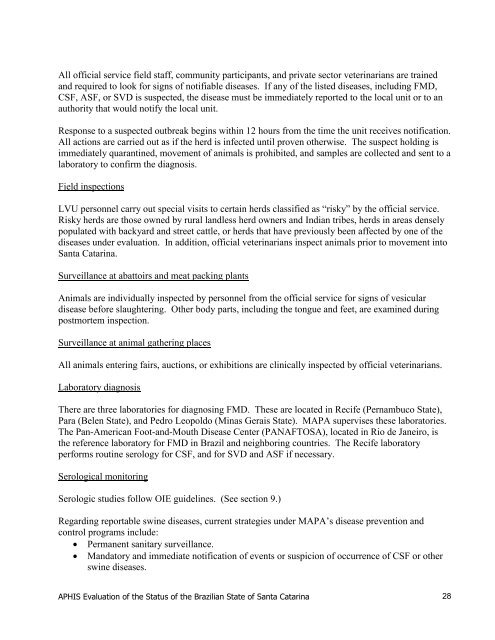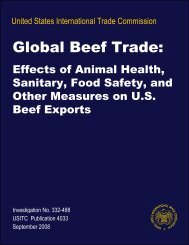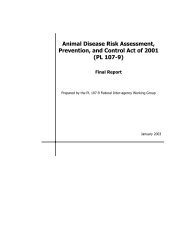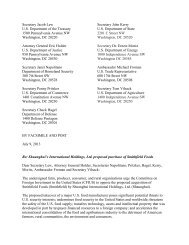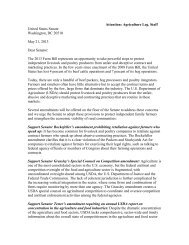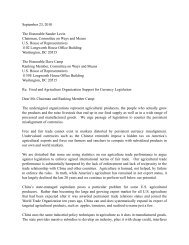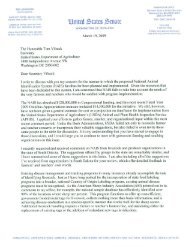Exhibit 8, 100416 Brazil FMD Risk Evaluation - R-Calf
Exhibit 8, 100416 Brazil FMD Risk Evaluation - R-Calf
Exhibit 8, 100416 Brazil FMD Risk Evaluation - R-Calf
Create successful ePaper yourself
Turn your PDF publications into a flip-book with our unique Google optimized e-Paper software.
All official service field staff, community participants, and private sector veterinarians are trained<br />
and required to look for signs of notifiable diseases. If any of the listed diseases, including <strong>FMD</strong>,<br />
CSF, ASF, or SVD is suspected, the disease must be immediately reported to the local unit or to an<br />
authority that would notify the local unit.<br />
Response to a suspected outbreak begins within 12 hours from the time the unit receives notification.<br />
All actions are carried out as if the herd is infected until proven otherwise. The suspect holding is<br />
immediately quarantined, movement of animals is prohibited, and samples are collected and sent to a<br />
laboratory to confirm the diagnosis.<br />
Field inspections<br />
LVU personnel carry out special visits to certain herds classified as “risky” by the official service.<br />
<strong>Risk</strong>y herds are those owned by rural landless herd owners and Indian tribes, herds in areas densely<br />
populated with backyard and street cattle, or herds that have previously been affected by one of the<br />
diseases under evaluation. In addition, official veterinarians inspect animals prior to movement into<br />
Santa Catarina.<br />
Surveillance at abattoirs and meat packing plants<br />
Animals are individually inspected by personnel from the official service for signs of vesicular<br />
disease before slaughtering. Other body parts, including the tongue and feet, are examined during<br />
postmortem inspection.<br />
Surveillance at animal gathering places<br />
All animals entering fairs, auctions, or exhibitions are clinically inspected by official veterinarians.<br />
Laboratory diagnosis<br />
There are three laboratories for diagnosing <strong>FMD</strong>. These are located in Recife (Pernambuco State),<br />
Para (Belen State), and Pedro Leopoldo (Minas Gerais State). MAPA supervises these laboratories.<br />
The Pan-American Foot-and-Mouth Disease Center (PANAFTOSA), located in Rio de Janeiro, is<br />
the reference laboratory for <strong>FMD</strong> in <strong>Brazil</strong> and neighboring countries. The Recife laboratory<br />
performs routine serology for CSF, and for SVD and ASF if necessary.<br />
Serological monitoring<br />
Serologic studies follow OIE guidelines. (See section 9.)<br />
Regarding reportable swine diseases, current strategies under MAPA’s disease prevention and<br />
control programs include:<br />
Permanent sanitary surveillance.<br />
Mandatory and immediate notification of events or suspicion of occurrence of CSF or other<br />
swine diseases.<br />
APHIS <strong>Evaluation</strong> of the Status of the <strong>Brazil</strong>ian State of Santa Catarina 28


